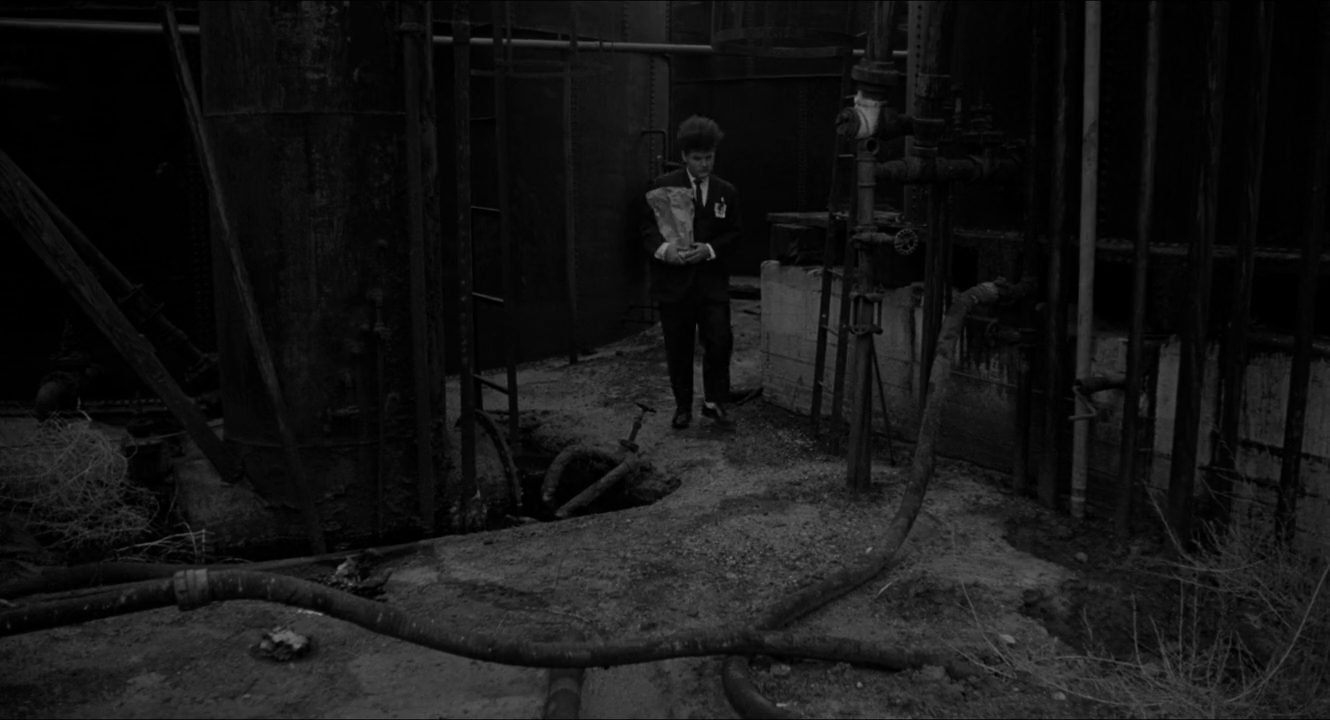By Isaac Held //
Few people have loathed a city as productively as David Lynch loathed Philadelphia. Lynch’s relationship with Philadelphia was long and fraught, and to understand it, one must start with his childhood. The majority of Lynch’s early life took place in small rural towns in the American Northwest. In a 2014 interview at Bryn Mawr, he recalled the blue skies, tall trees, white picket fences and mowed lawns of his childhood. He was even an Eagle Scout, if you can believe it. He described the setting in which he grew up as “idyllic” ,“beautiful” and “hopeful.”
If you have seen many of Lynch’s films, this context may be a bit disorienting given the nature of some of his creations. You may wonder what it was about Lynch’s life that led him to create such grotesque and gnarled films. Luckily, Lynch answered this very question in conversation with Jay Leno on The Tonight Show in 1992. As the show starts, Lynch briefly discusses his childhood, calling his former self “straight as an arrow.” Leno begins to formulate a question along the lines of “what happened?” but before he can get it out, Lynch interrupts him: “I went to Philadelphia.”
Lynch’s stay in Philadelphia began in the mid-1960’s, when he enrolled at the Pennsylvania Academy of Fine Arts (PAFA). In a 1997 interview with Chris Rodley, Lynch revealed that though he enjoyed his time at PAFA, he felt that the city of Philadelphia, specifically the industrial belt stretching across the north Broad street and Callowhill areas, had the greatest influence on him and his work. In the ’60s and ’70s, this was the industrial fringe of Philadelphia – and for Lynch, it was a place where grime and beauty coexisted. Perhaps the best way to get a sense of what the city felt like to him is through his own words. To that end, I have compiled my favorite of his quotes on Philadelphia, of which there are many.
“I always say, Philadelphia, Pennsylvania, is my biggest influence. There is something about the mood here. The fear, insanity, corruption, filth, despair, violence in the air was so beautiful to me.” – PAFA new conference, 2014
“I saw horrible things, horrible, horrible things while I lived there. It was truly inspiring.” – Philadelphia Inquirer, 1986
“Yes, (Philadelphia is) horrible, but in a very interesting way. There were places there that had been allowed to decay, where there was so much fear and crime that just for a moment there was an opening to another world. It was fear, but it was so strong, and so magical, like a magnet.” – The Face, 1987
“When I was here, every building was black, soot-covered. And every building had a mood and it was before graffiti so it was very pure, very filthy, but it had a beautiful mood.” – PAFA news conference, 2014
“It was a mixture of heaven and hell, Philadelphia.” – Loud and Quiet, 2013
The first movie Lynch made after living in Philadelphia was Eraserhead. I’m sure Eraserhead is about something, but what stuck with me after watching it was the atmosphere that Lynch managed to create. The whole movie felt like a bad dream, one of confusion and despair and decay, all with the hum of machinery in the background. It is not hard to imagine that this is what Philadelphia felt like to Lynch.
In stark contrast to Eraserhead, as well as many of his other works, is his own demeanor. In an interview, Sherilynn Fenn, who worked with Lynch in Twin Peaks, described Lynch as “apple pie,” saying he constantly used phrases like “Doggone it!” or “That’s Jim Dandy!” She went on to describe him as a “paradox” in that he seems so “straight” but then has all of these “strange thoughts within his head.” This is one of the most amusing things to me about David Lynch. You could watch one of his movies and be thoroughly disturbed for the better part of a week, then you’ll see him talking in an interview, and you swear you’ve never seen someone so boyish and earnest and kindhearted.
It seems worthwhile to view both Lynch and his works as reflections of his formative environments. His quaint northwestern upbringing seems to bleed through both in his mannerisms and in the worlds of creations like Twin Peaks and Blue Velvet. By contrast, his years in Philadelphia left a darker imprint on him, one that began a fascination with fear and decay.
